Agnete still struggles with late complications: My body is weakened from battling this virus
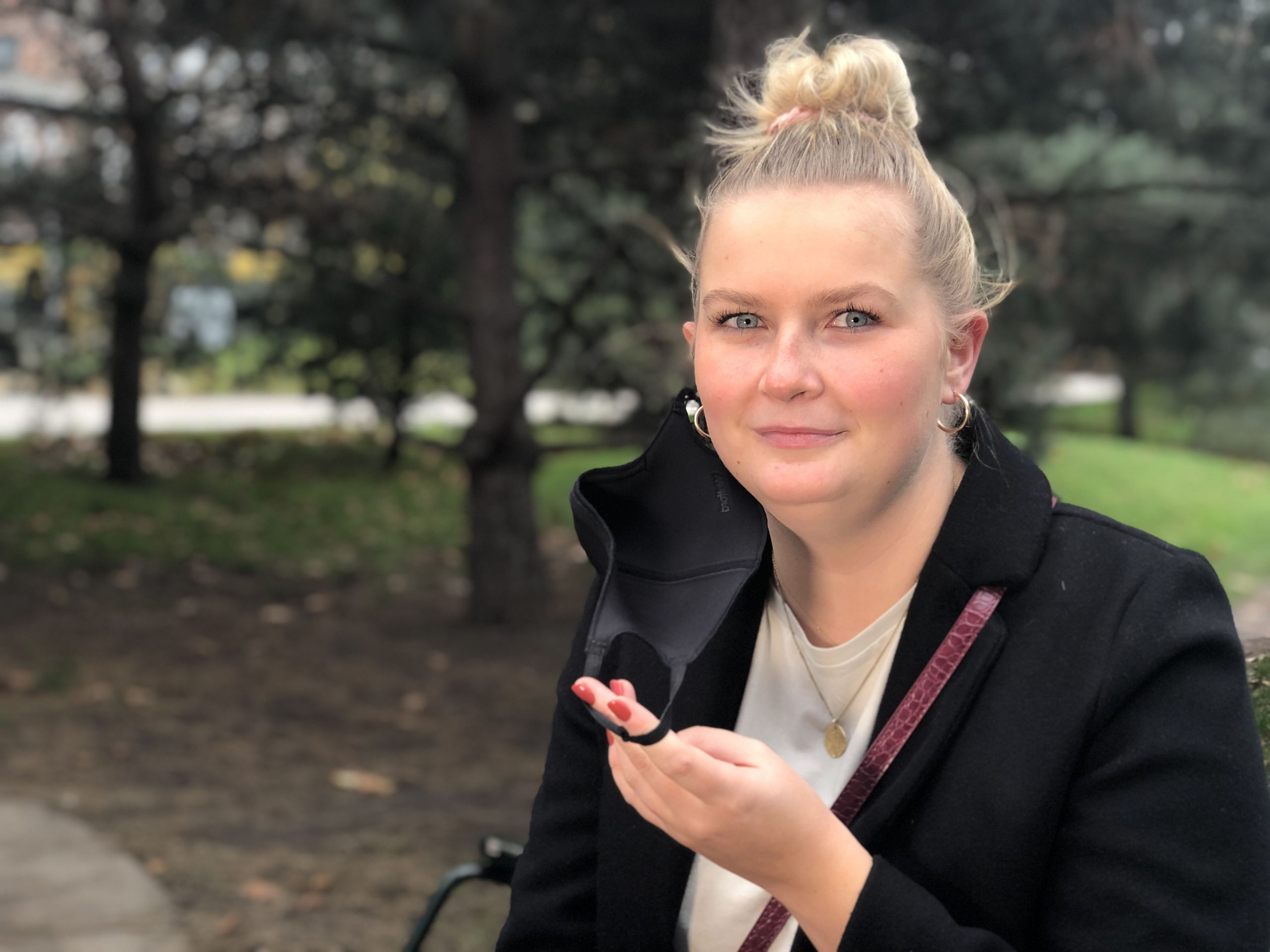
Agnete Hald Knudstrup is still struggling with late complications after contracting the coronavirus back in May. (Photo: Anne M. Lykkegaard)
For a month, CBS student Agnete Hald Knudstrup was in self-isolation after catching the coronavirus. That was in May. Today, she still thinks carefully about how to manage her energy, as late complications are still causing her trouble.
Agnete Hald Knudstrup went straight home to her parents in Aarhus when Mette Frederiksen announced the full lockdown in mid-March. She did not want to risk being all alone in her apartment if a curfew was imposed.
She was very strict about not seeing friends in Aarhus, and only ventured outdoors to go grocery shopping for her father, who has diabetes.
“And that is probably where I caught the virus. I cannot think of anywhere else I would have contracted it other than in the supermarket,” explains Agnete Hald Knudstrup, a fifth semester BSc Business Administration and Psychology (HA Psyk.) student, via a Teams connection.
At the end of April, she went to Copenhagen for five days for the first time since the lockdown for a regular hospital check-up. On the third day, she started to get a headache and sore throat. Agnete Hald Knudstrup pushed it aside.
“I had been sitting outside and it was a bit chilly, so it was probably because of that, I thought to myself,” she says.
Later, after returning to Aarhus, the headache does not go away, so Agnete Hald Knudstrup’s mother suggests that she takes a test and she is ordered to self-isolate in a bedroom in the basement of her parents’ house. As the house only has one bathroom, Agnete Hald Knudstrup is given her own towel, own bar of soap, shampoo and conditioner, and uses gloves and sanitizer.
I felt I needed to make people understand what they were risking. But slowly, I realized that this wasn’t my responsibility
Agnete Hald Knudstrup
She waits five or six days to get her test results, but the doctor informs her that her test has gone missing, so a new one has to be made. On Great Prayer Day (Storebededag) May 8, Agnete Hald Knudstrup feels better, and her brother and pregnant sister come over for lunch.
“As I’m sitting at the table, I get the test result. It’s positive. I was like, you’ve got to be kidding me! So I start laughing because I find it so tragi-comic. At that time, not that many had been testing positive, so I was among the first 10,000 people with a positive test,” she explains.
And shortly after, the symptoms get increasingly worse.
“It felt as if someone had thrown a block of concrete onto my body. Everything hurt. I only went outside at night for very short walks, and I quickly lost my breath and felt as if I had a weight on my chest. I even felt out of breath from just lying down. At one point, I even asked my parents to have their phones on loud at night in case I couldn’t catch my breath. That’s when it peaked,” she says and adds:
“I think I’ve tried my fair share of different illnesses, but this one tops them all. When it’s about your heart and lungs, which are vital for your wellbeing, it’s scary.”
“A had a common cold and it hit me hard”
On May 30, Agnete Hald Knudstrup is well again and comes out of her one-month self-isolation. It feels “like magic”.
“Finally, I was out, and at that point, society had started to open up as well, and I felt like I could have an everyday life. So I went back to Copenhagen,” she says.
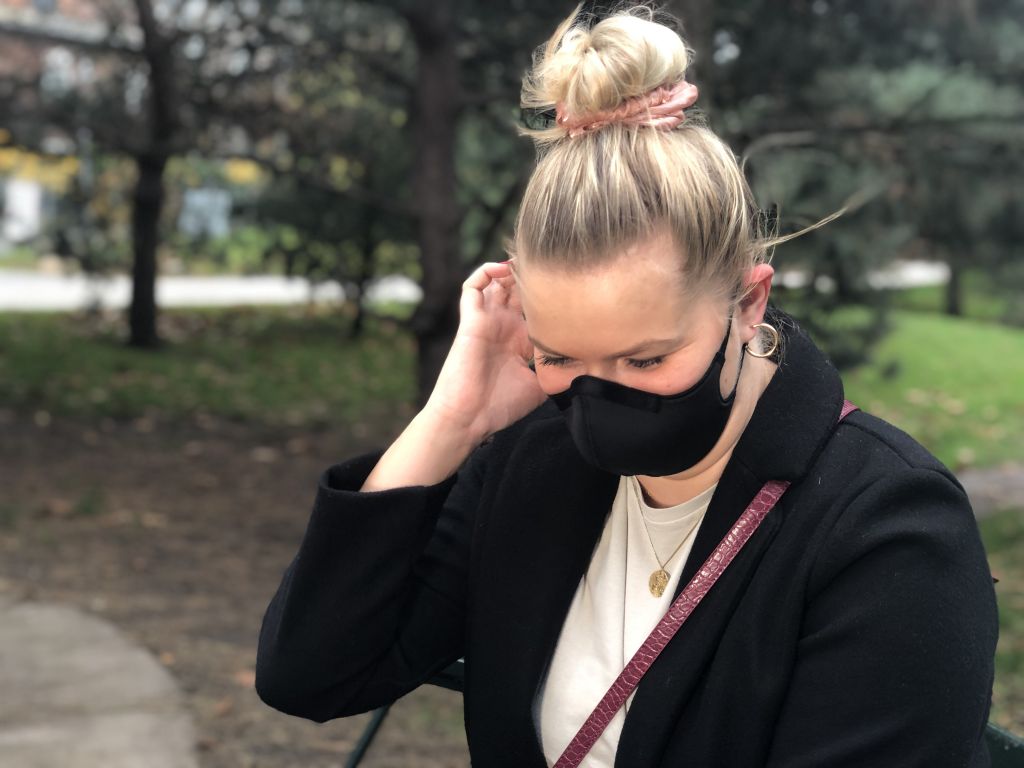
Every day, Agnete Hald Knudstrup has to consider her energy levels, as the late complications are still around. (Photo: Anne M. Lykkegaard)
But everything is not back to normal. Agnete Hald Knudstrup keeps feeling out of breath easily, but thinks to herself that this makes sense after lying down for about a month. She starts working out more regularly, but her health does not improve.
“Not until I join a group for people suffering from late complications of coronavirus do I realize that this is what I’m also experiencing. I had to take breaks during dance classes because it felt like my chest was contracting in pain. And after a couple of months, I went to Bispebjerg Hospital to have my lungs checked, and they are still trying to figure out what’s the matter, as there is no scar tissue to be seen,” she says and continues:
“In September, I had a common cold, but it hit me hard. My body is weakened from battling this virus.”
Agnete Hald Knudstrup explains that self-isolating was not as bad as dealing with the late complications.
“I don’t know when this will be over, and that’s the worst part. I’m in several different research projects gathering data from people who are suffering from late complications. I just don’t want to have to think about how much I can push myself physically and I still have to pay attention to my energy levels. I have to take the metro to dance classes, because otherwise I get chest pains. So I think about it a lot,” she says.
“I’ve quit telling people what to do”
When Agnete Hald Knudstrup returned to CBS as a tutor for the new HA Psyk. Students, she felt obliged to tell people if they were not complying with the restrictions.
“I wanted to convince them that it was stupid to be in groups, and that partying was not worth getting the disease. I felt I needed to make people understand what they were risking. But slowly, I realized that this wasn’t my responsibility,” she says and adds:
“But I openly describe my own experience and how it can affect a perfectly healthy young adult, and that it’s not just an infection that leaves you sick on the couch for a couple of days. If just five people decide not to join one of those pirate parties, then I’m happy. But I have quit telling people what to do.”



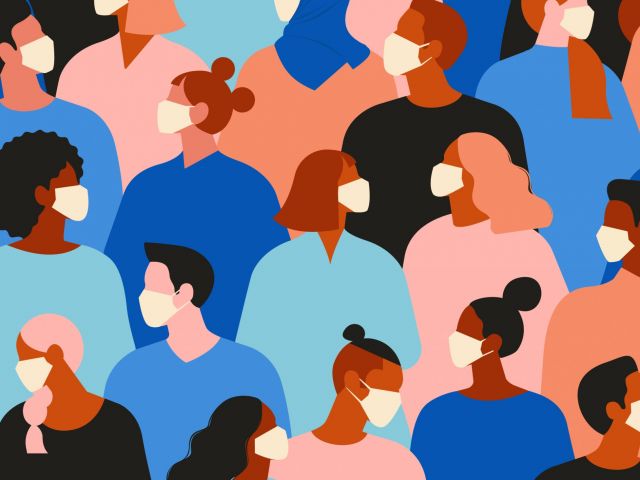
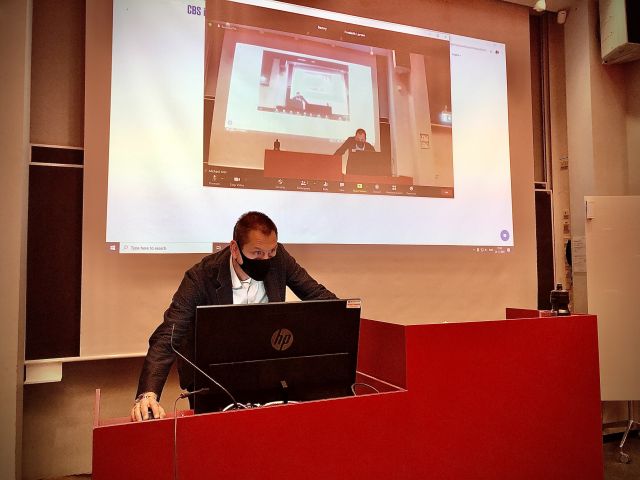
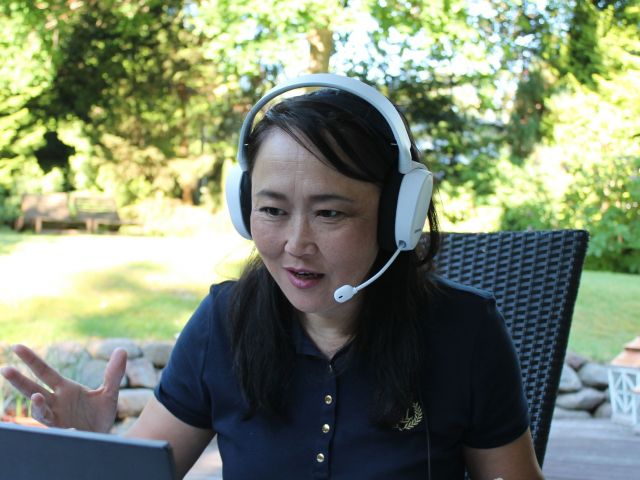
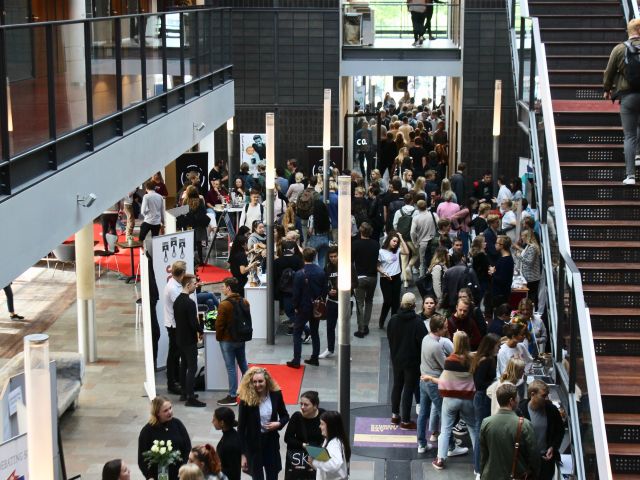
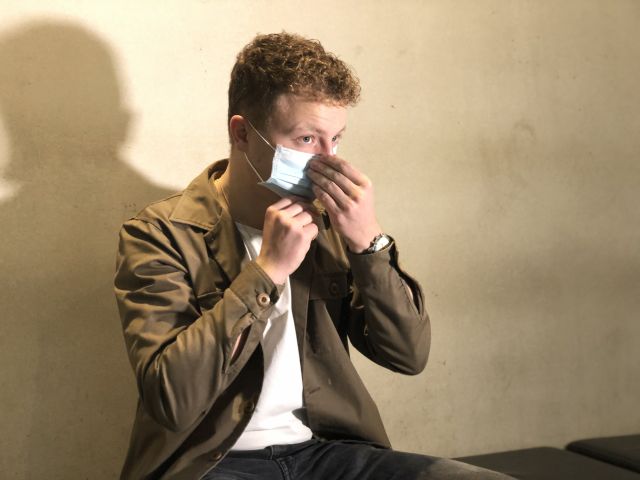
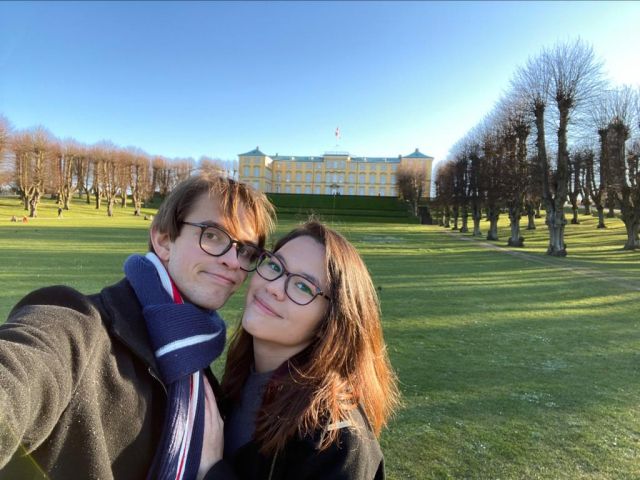




























































































































Comments